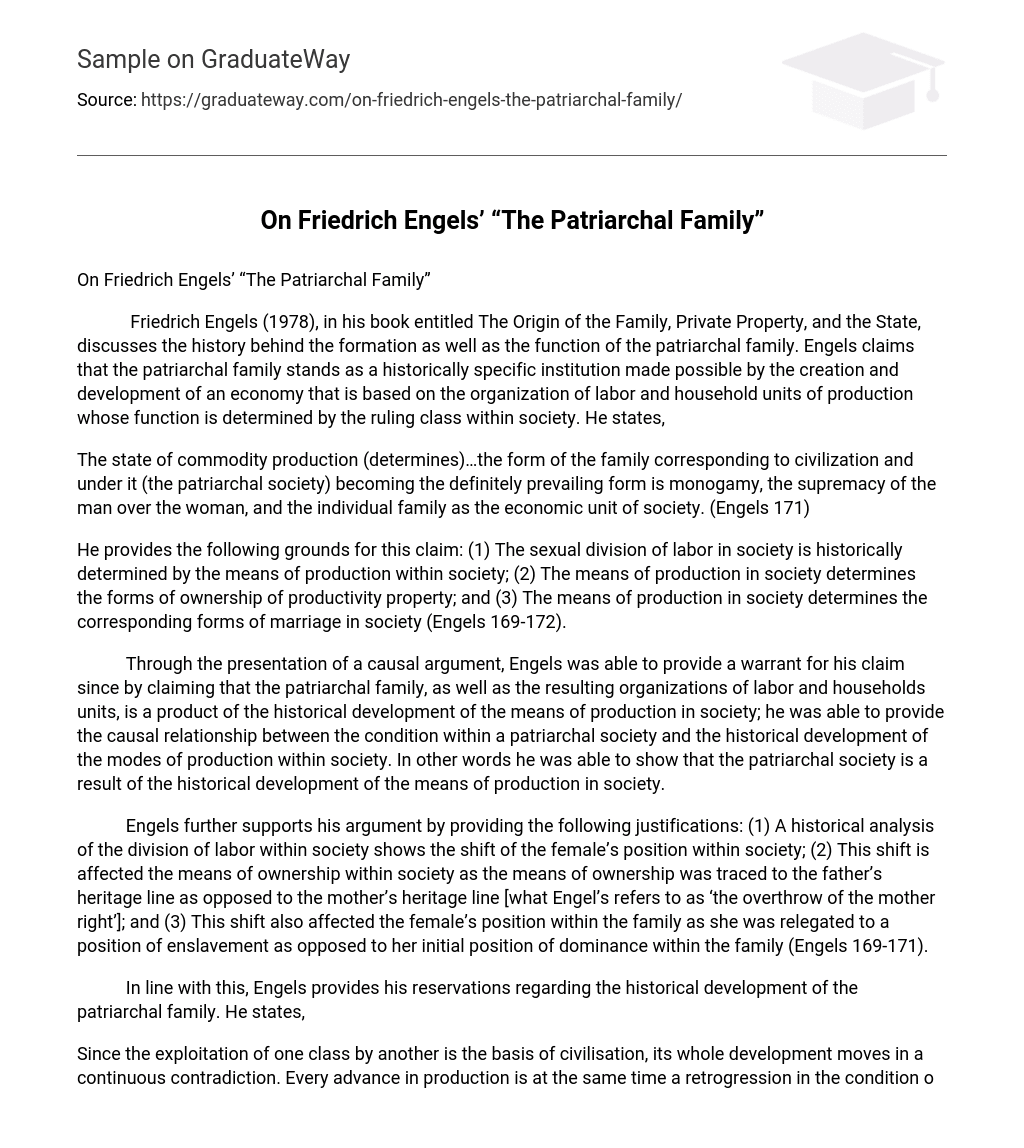Friedrich Engels (1978), in his book entitled The Origin of the Family, Private Property, and the State, discusses the history behind the formation as well as the function of the patriarchal family. Engels claims that the patriarchal family stands as a historically specific institution made possible by the creation and development of an economy that is based on the organization of labor and household units of production whose function is determined by the ruling class within society. He states,
The state of commodity production (determines)…the form of the family corresponding to civilization and under it (the patriarchal society) becoming the definitely prevailing form is monogamy, the supremacy of the man over the woman, and the individual family as the economic unit of society. (Engels 171)
He provides the following grounds for this claim: (1) The sexual division of labor in society is historically determined by the means of production within society; (2) The means of production in society determines the forms of ownership of productivity property; and (3) The means of production in society determines the corresponding forms of marriage in society (Engels 169-172).
Through the presentation of a causal argument, Engels was able to provide a warrant for his claim since by claiming that the patriarchal family, as well as the resulting organizations of labor and households units, is a product of the historical development of the means of production in society; he was able to provide the causal relationship between the condition within a patriarchal society and the historical development of the modes of production within society. In other words he was able to show that the patriarchal society is a result of the historical development of the means of production in society.
Engels further supports his argument by providing the following justifications: (1) A historical analysis of the division of labor within society shows the shift of the female’s position within society; (2) This shift is affected the means of ownership within society as the means of ownership was traced to the father’s heritage line as opposed to the mother’s heritage line [what Engel’s refers to as ‘the overthrow of the mother right’]; and (3) This shift also affected the female’s position within the family as she was relegated to a position of enslavement as opposed to her initial position of dominance within the family (Engels 169-171).
In line with this, Engels provides his reservations regarding the historical development of the patriarchal family. He states,
Since the exploitation of one class by another is the basis of civilisation, its whole development moves in a continuous contradiction. Every advance in production is at the same time a retrogression in the condition of the oppressed class, that is, of the great majority. (Engels 172)
Engel’s reservation regarding the manner through which the modes of production affects the institution within society is evident as he states that the effects of the modes of production on the institutions within society leads to the ‘continuous contradictions’ in civilization which is apparent in the dominant group’s hegemony over the ‘great majority’ (Engels 172).
In line with this, Engels provides a qualification for his argument by arguing that the effects of the modes of production on the organization of societal institutions will only be applicable within a society which is driven by its market hence it follows from this that if societal conditions will change wherein the market is no longer the main determinant of the relations within societal institutions, Engel’s claim would no longer be applicable.
Work Cited
Engels, Friedrich. “The Patriarchal Family.” Social Class and Stratification: Classic Statements and Theoretical Debates. Ed. Rhonda Levine. Oxford: Rowman & Littlefield, 1998.
.
.





